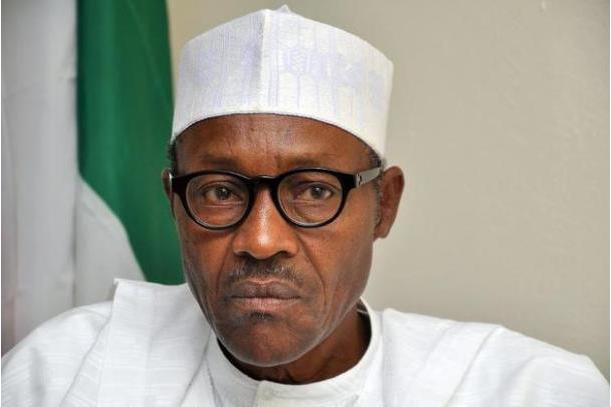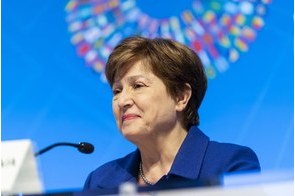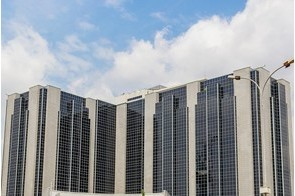Latest News
Buhari advocates economic and monetary integration in Africa

News Highlight
- President Muhammadu Buhari emphasized the need for coordination between monetary and fiscal policies to tackle the continent's challenges.
Nigerian President, Muhammadu Buhari, has advised on the need to fast-track efforts to strengthen the economic and monetary integration of Africa. Buhari made his advocacy in a speech at the 39th Ordinary meeting of the Assembly of Governors of the Association of African Central Banks (AACB), which held on Friday at the Central Bank of Nigeria (CBN) headquarters in Abuja.
While noting the important role of central banks in the search for lasting solutions to address the economic crisis facing African countries, the Nigerian president emphasized the need for coordination between monetary and fiscal policies in order to tackle the continent's challenges. According to Buhari, the collaborative effort is crucial, particularly due to the contagion effect of weak global demand and Africa’s common challenges such as budget deficits, increasing public debt and illicit capital flows.
The African project on economic integration was first conceived with the establishment of Organisation of African Unity (OAU) in 1964. Its aim was to promote economic development of the continent through economic cooperation among African states. The agenda was followed by the establishment of sub-regional groupings such as the Economic Community of West African States (ECOWAS) to foster a common market, among other aims. Progress has been made with economic integration in Africa, especially at some sub-regional levels, although much is left to be desired.
Progress on monetary integration remains weak, as acknowledged by the AACB in Abuja last week. The African Monetary Co-operation Programme (AMCP) of the Association of African Central Banks was adopted in Algiers, on September 4, 2002, with certain criteria for macroeconomic convergence. Some of the primary convergence criteria outlined in the AMCP include overall budget deficit of less than or equal to 3% of GDP; elimination of central bank financing of budget deficit; inflation rate of less than 5%; and external reserves to support six months of import cover.
Buhari praised governors of the 27 central banks at the meeting, stating that they have done their best to sustain their respective economies through proactive and effective use of conventional and unconventional monetary policy. He also acknowledged the role of central banks in sub-Saharan Africa in promoting more inclusive economic growth.
The president highlighted the interventions of the Central Bank of Nigeria, which he noted have provided the much-needed stimulus in the Nigerian economy.
While urging the CBN to sustain its measures, Buhari said there was room for improvement among African central banks. He urged the AACB to seek home-grown solutions to Africa’s economic challenges, instead of relying on prescriptions from outside the continent. “The world is a dynamic place; with innovation, we can survive,” Buhari said.
In addition, the president emphasized the need for structural transformation in African economies to ensure food self-sufficiency and increased exports of manufactured goods.
The AACB examined the state of implementation of the African Monetary Cooperation Programme, pointing out the inability of African states to sustainably meet some of the criteria for macroeconomic convergence due to the negative impact of the international environment including the fall in prices of raw materials and commodities.
The governors called on countries to strengthen the pillars of their economies by implementing structural reforms, diversifying their economies, improving the business environment and promoting intra-regional trade. The assembly of central bank governors said these efforts will help strengthen the resilience of African economies in the face of external shocks.
At the conclusion of the meetings, Governor of the Central Bank of Nigeria, Godwin Emefiele, was elected as President of the AACB for the 2016-2017 period. The Vice Presidency, which was zoned to the southern African sub-region, would be communicated later, according to the AACB.
Related News
Latest Blogs
- Driving economic growth through green transition in Nigeria
- CBN is fighting inflation instead of stagflation
- Why electricity privatization failed (2)
- How net metering can boost embedded power generation
- Adaora Umeoji and gender in Nigerian banking leadership
Most Popular News
- IFC, partners back Indorama in Nigeria with $1.25 billion for fertiliser export
- CBN increases capital requirements of banks, gives 24 months for compliance
- Univercells signs MoU with FG on biopharmaceutical development in Nigeria
- CBN settles backlog of foreign exchange obligations
- Ali Pate to deliver keynote speech at NDFF 2024 Conference
- Euromonitor forecasts Sub-Saharan Africa GDP to grow to $4.5trn by 2040






